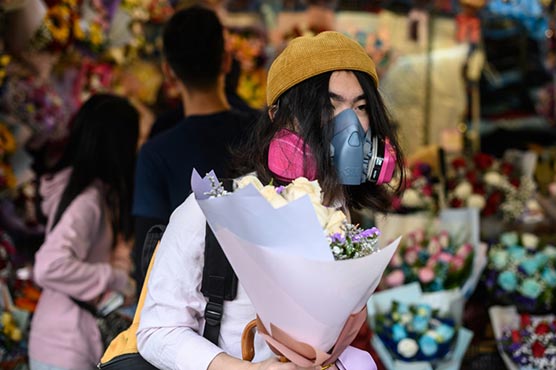Virus-hit Hong Kong says it with face masks, not flowers

Virus-hit Hong Kong says it with face masks, not flowers
Hong Kong (AFP) - Hong Kong’s flower markets are lamenting dismal Valentine’s Day sales as the city battles the deadly coronavirus outbreak, with admirers joking that a box of face masks is a better way to say "I love you" than a bouquet.
Aman Fong, an art director at a flower shop in the district of Mong Kok, says the usually bumper week leading up to Valentine’s Day has been horrendous for business.
"It’s much worse than previous years, not many people are going out onto the streets because of the virus," he told AFP, estimating a 40 percent drop in sales.
The supply of flowers has "also dropped as many of our original suppliers on the Chinese mainland... are closed because of the coronavirus," he said, adding his company has had to import flowers from the Netherlands and Taiwan instead.
A manager at another store, who gave her name as Joyce, said her shop has had to reduce what they buy as customer interest wilts.
"Fresh flowers could only keep for five to seven days. We don’t want to order too much in case we can’t sell them," she said.
The hot commodity this year is instead face masks, an item in short supply, with lengthy queues popping up outside any pharmacies that announce a new delivery.
A third of respondents to a customer survey by local matchmaking service Hong Kong Romance Dating said surgical masks and hand sanitiser were the Valentine’s Day gifts they were most hoping for.
Social media was full of pictures of alternative bouquets -- of masks, rice, wet-wipes, toilet roll and other commodities disappearing from supermarket shelves.
Businesses are bracing for a hit, knowing couples are less likely to leave their apartments but some are implementing measures to draw the intrepid out.
Multiple cinema chains have said they will only sell tickets for every other row in a bid to widen the distance between customers.
And some restaurants with communal tables -- a common sight in more traditional establishments -- have installed plastic separation barriers.

